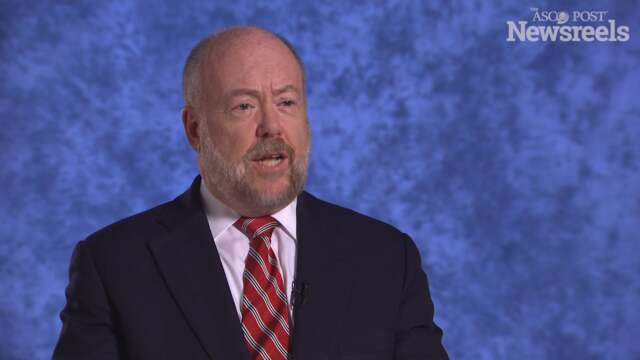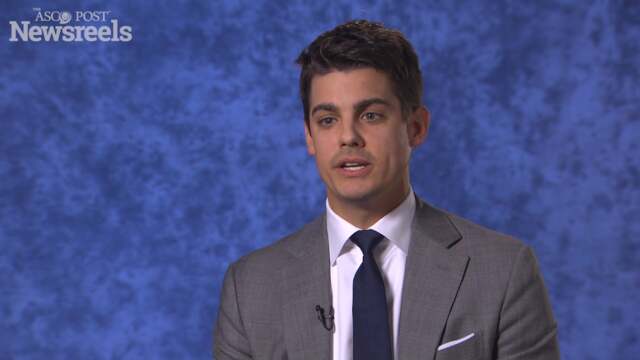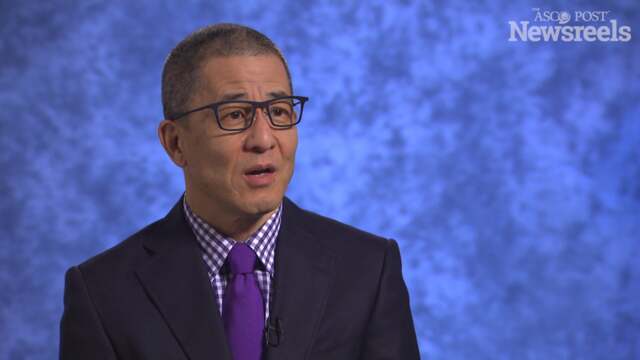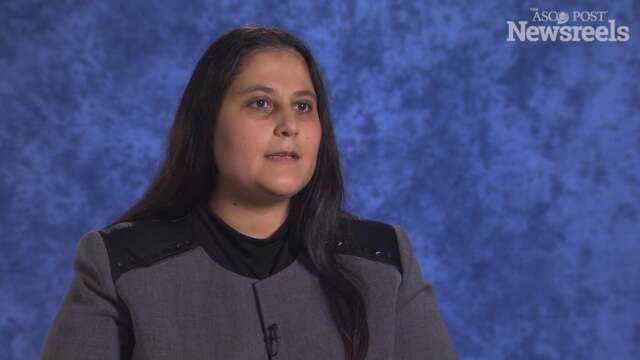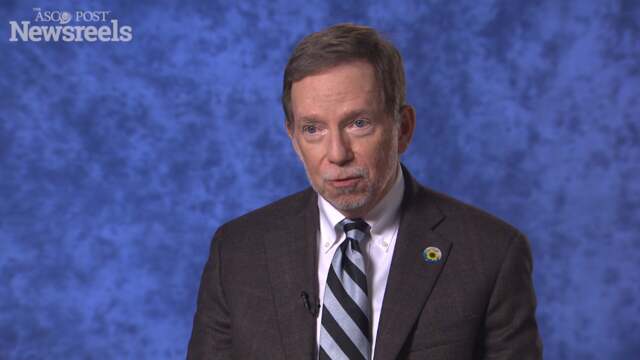Jeremy Hirst, MD, on My Patient Needs Opiates and Benzodiazepines: What Should I Do?
2017 Palliative Care in Oncology Symposium
Jeremy Hirst, MD, of the University of California, San Diego, offers concrete advice on assessing the need for these medications, using them safely, and knowing when to deprescribe them.
Charles F. von Gunten, MD, PhD, of OhioHealth, discusses an online curriculum that changed younger physicians’ use of palliative medicine in practice during the year after fellowship training (Abstract 202).
Jacob J. Strand, MD, of the Mayo Clinic, discusses tips and tools that clinicians can use to develop universal precautions for prescribing opioids in oncology and palliative care practice.
Anthony L. Back, MD, of the University of Washington, talks about how clinicians can protect themselves from burnout and develop resilience. The default approach––“pretending we are not affected by stress”––often backfires, he says, and makes caregivers more susceptible to workplace pressures.
Areej El-Jawahri, MD, of Massachusetts General Hospital, discusses a video tool that helps overcome communication barriers so that patients can make more informed decisions for end-of-life care and their preferences are respected.
Thomas J. Smith, MD, of Johns Hopkins University School of Medicine, discusses successful models of integrating palliative care into outpatient oncology.
